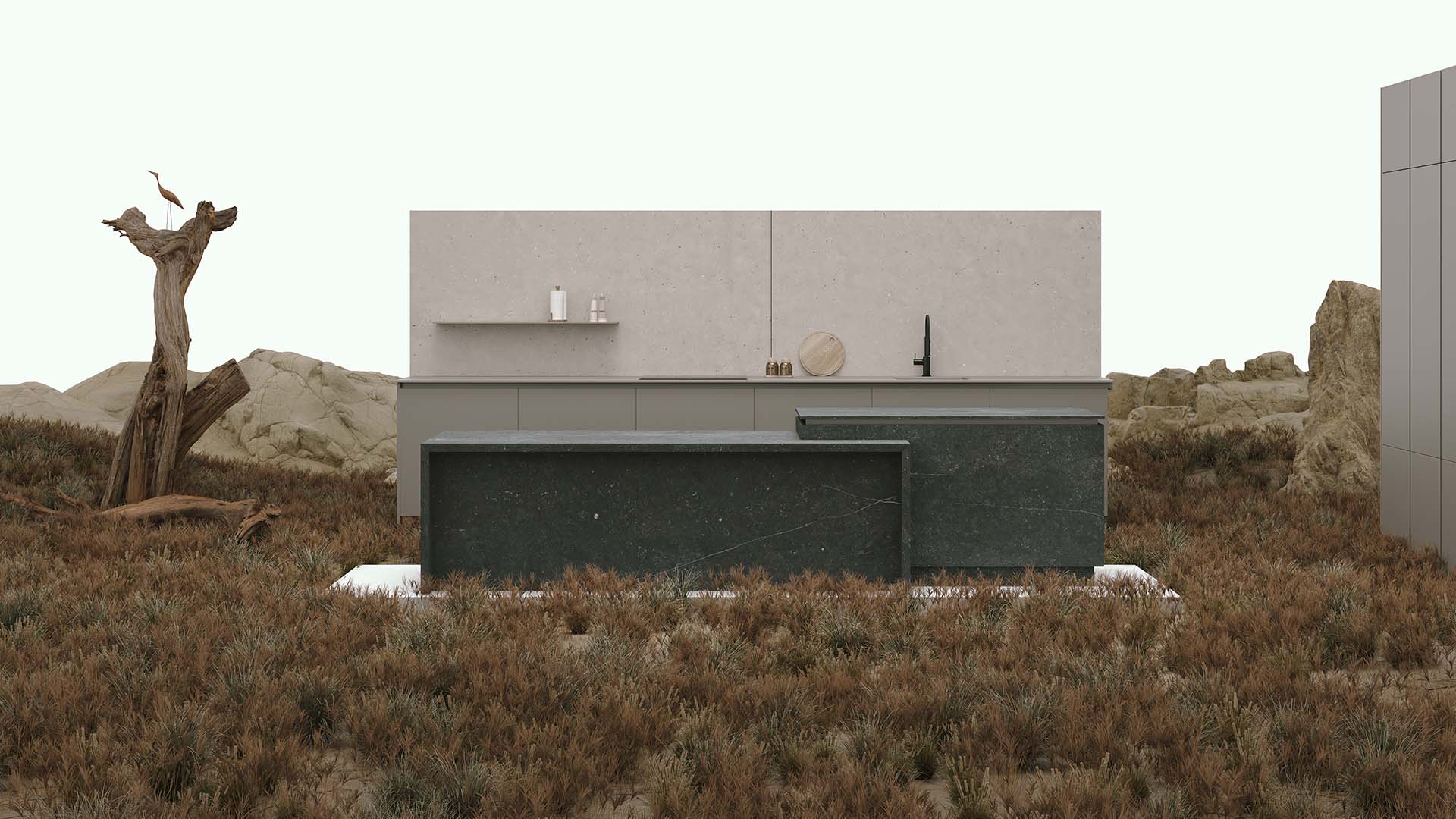
Pros and Cons of Porcelain Countertops

Porcelain countertops have become an increasingly popular choice in modern kitchens and bathrooms due to their durability, sleek appearance, and versatility. However, like any material, porcelain has its advantages and disadvantages. If you're considering porcelain countertops for your home, here are some pros and cons to help you make an informed decision.
Porcelain Countertops
Pros:
1. Durability:Porcelain is an incredibly durable material, making it resistant to wear, scratches, and impacts. It can handle daily use in a kitchen or bathroom without showing signs of damage, which is a significant advantage over materials like natural stone that may be more prone to chipping or cracking.
2. Heat Resistance Porcelain is fired at extremely high temperatures, which makes it highly resistant to heat. You can place hot pots and pans directly on the countertop without worrying about heat damage, a feature that is especially important in kitchens where high temperatures are common.
3. Stain Resistance Porcelain countertops are non-porous, meaning they do not absorb liquids or stains. This makes them resistant to spills from things like wine, coffee, or oils, which could easily stain other countertop materials like marble or granite.
4. Low Maintenance Unlike natural stone, which often requires sealing and special cleaning products, porcelain countertops are low maintenance. They can be cleaned with simple soap and water, and their stain-resistant nature eliminates the need for harsh chemicals or regular sealing.
5. Versatile Design Options Porcelain is available in a wide variety of colors, patterns, and finishes, many of which can mimic the look of natural stone, wood, or concrete. This allows homeowners to achieve the aesthetic they desire without the cost or maintenance of natural materials. Large-format porcelain slabs can also provide a seamless look with minimal grout lines.
6. Eco-Friendly Porcelain is made from natural raw materials, including clay and sand, which are abundant and environmentally friendly. Additionally, porcelain countertops are recyclable, making them a sustainable option for eco-conscious homeowners.
Cons:
1. Higher Cost While porcelain countertops are generally more affordable than high-end natural stones like marble, they can still be expensive, especially for custom installations. The cost of large-format porcelain slabs, installation, and fabrication may add up, making it less budget-friendly for some homeowners.
2. Potential for Chipping Although porcelain is highly durable, its edges and corners can be prone to chipping if subjected to significant impact. This is more likely in thin porcelain slabs, which may require additional care during handling and use.
3. Limited Thickness Options Porcelain countertops are typically available in thinner slabs compared to natural stone countertops. While this can create a sleek, modern look, it may not appeal to homeowners looking for the thick, substantial appearance that materials like granite or quartz offer.
4. Complex Installation Because porcelain is a thin and relatively brittle material, it requires careful installation by professionals. Any mistakes during the installation process, such as improper cutting or handling, can lead to cracks or other damage, which may add to the overall cost.
5. Limited Availability in Some Regions While porcelain countertops are gaining popularity, they are still not as widely available as materials like granite or quartz in some regions. This can make it more difficult to find the specific design you want or may result in higher costs due to limited availability.
Conclusion: Is Porcelain Right for You?
At Lioli Ceramica, Porcelain countertops offer many benefits, such as durability, heat resistance, and low maintenance, making them an excellent choice for busy kitchens and bathrooms. However, potential drawbacks like the higher cost, risk of chipping, and complex installation should also be considered. If you're looking for a modern, versatile, and eco-friendly countertop material, porcelain kitchen countertops might be the perfect solution for your home. However, if you prioritise a thicker, more traditional countertop or are working with a tight budget, other materials like granite or quartz might be a better fit.
Contact us today at +91 22 62807474 or email us at [email protected] to explore our collection.

Latest Blogs

Selecting the Perfect Porcelain Tiles for Kitchen: Expert Guide
Revamping your kitchen floor tiles with the right tiles can elevate the aesthetic appeal and functionality of your space.

Proven Maintenance Strategies for Porcelain Countertops: Keeping Them Pristine!
Porcelain countertops are a popular choice for homeowners seeking durability, versatility, and timeless elegance in their kitchens and bathrooms.

LARGE-FORMAT PORCELAIN WALL TILE INSTALLATION GUIDE
While large format tiles look stunning, their laying can be a bit complicated. In this blog, Lioli Ceramica explains the wall tile installation process, some common mistakes to avoid, and some extra tips to ensure your walls look perfect once you tile them up! ...